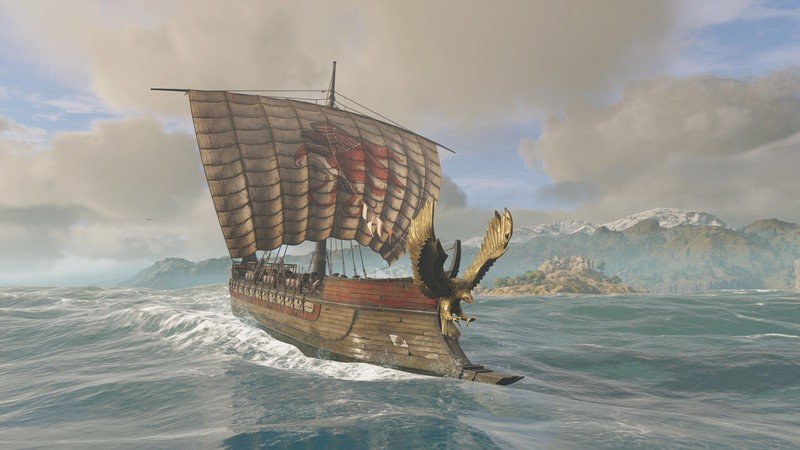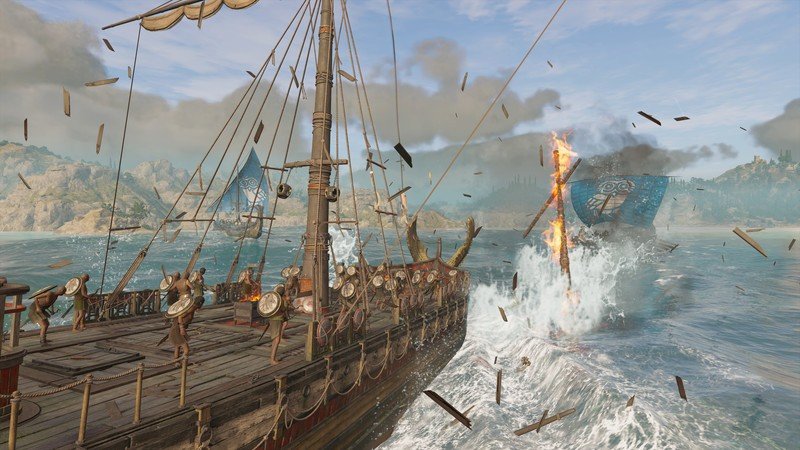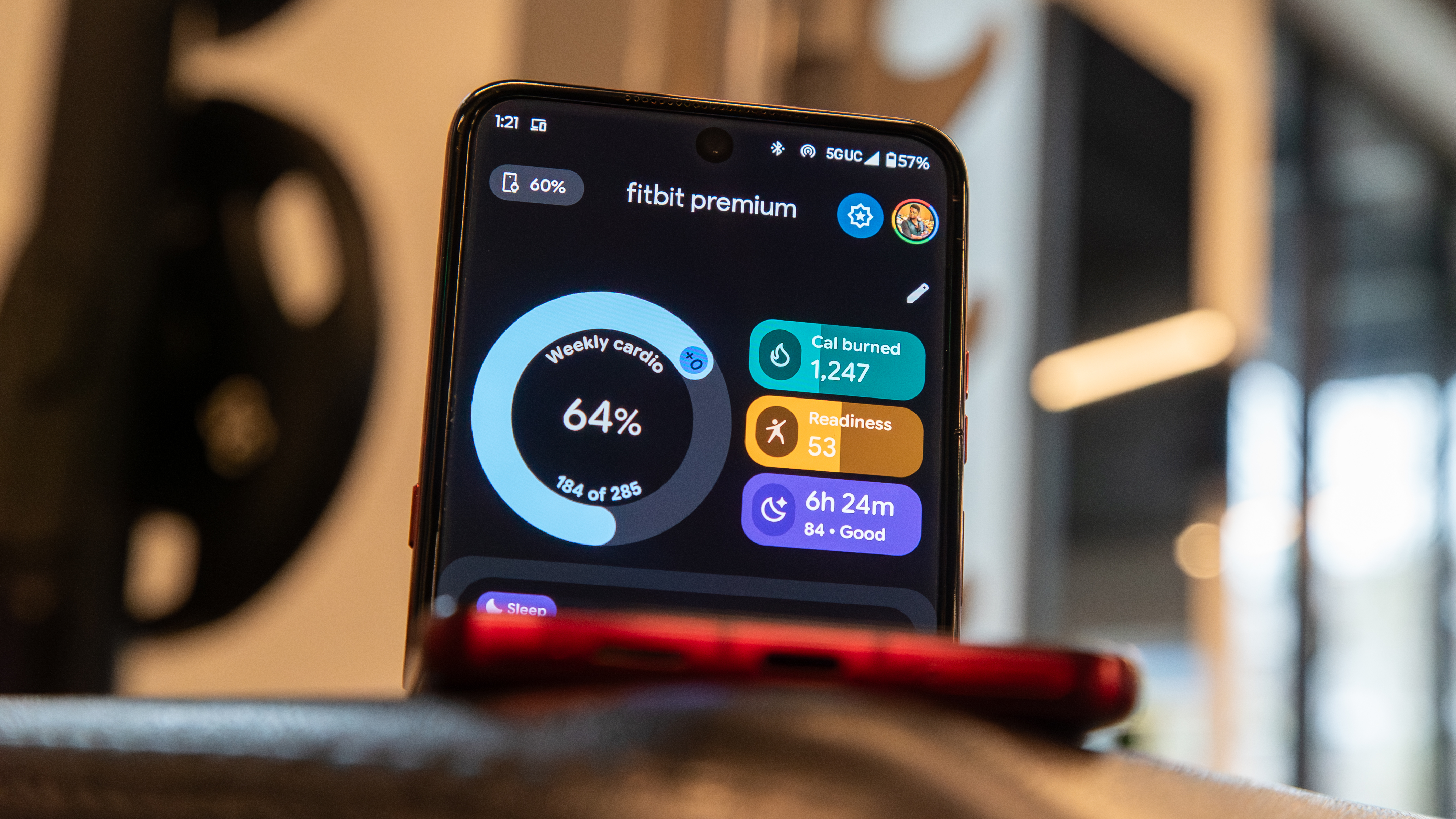Assassin's Creed Odyssey review: Impressively detailed and fun, but familiar
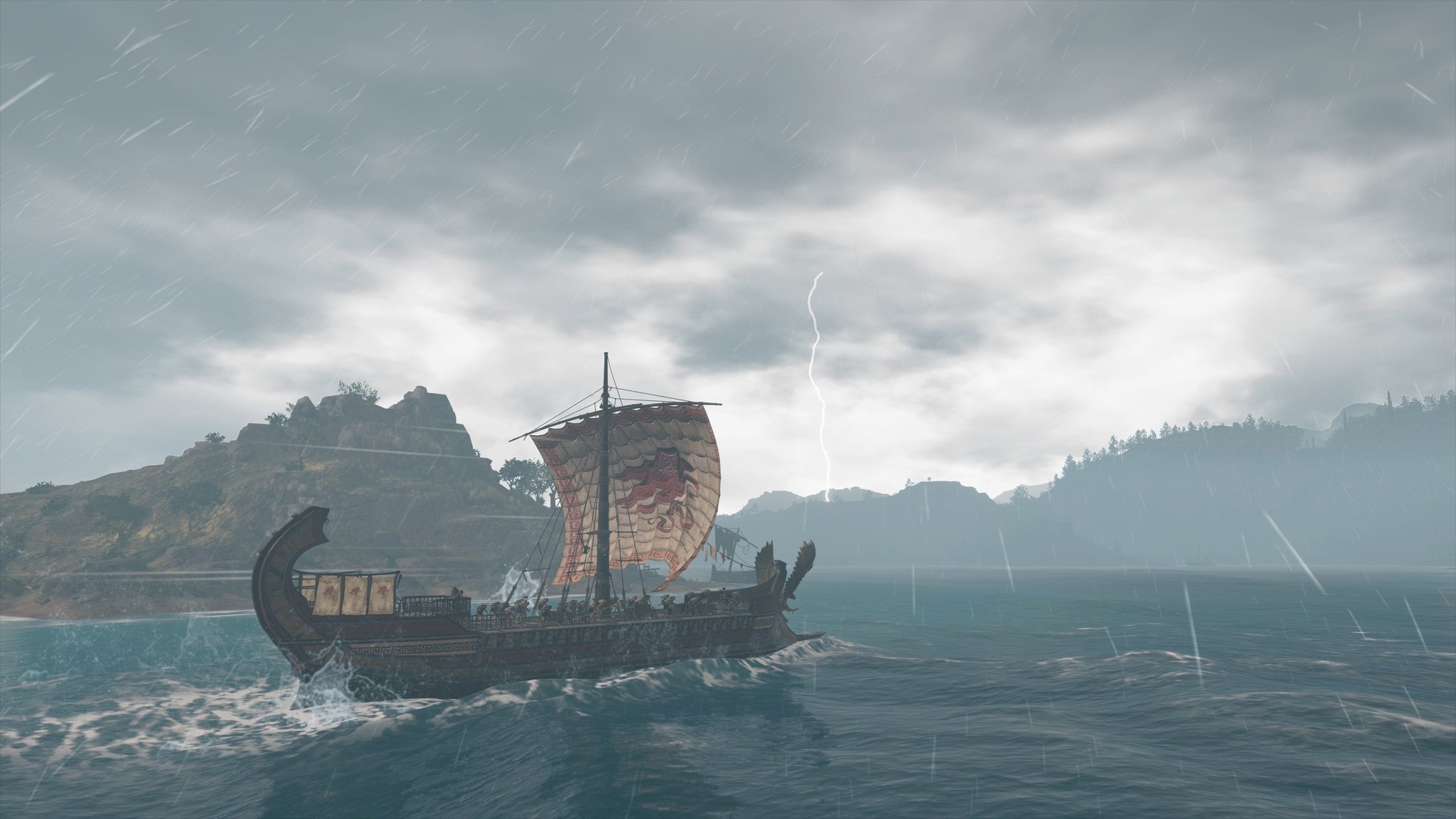
Assassin's Creed is a staple video game franchise that seems to always maintain a high standard of gameplay, open-world shenanigans, and stunning visuals. Assassin's Creed went dark for a couple of years following Assassin's Creed Syndicate, as Ubisoft struggled with franchise fatigue.
Assassin's Creed Origins, released just last year, was arguably the best Assassin's Creed in years, bringing with it fresh RPG mechanics, stunning 4K visuals, set in a vast Ancient Egypt landscape. Assassin's Creed Odyssey pushes deeper into RPG territory, with a branching, choice-and-consequence narrative, an emphasis on loot and equipment upgrades, and experience gain.
Set in Ancient Greece, how well does Odyssey stand up to the Assassin's Creed legacy? Here's what you need to know.
Assassin's Creed Odyssey visuals and setting
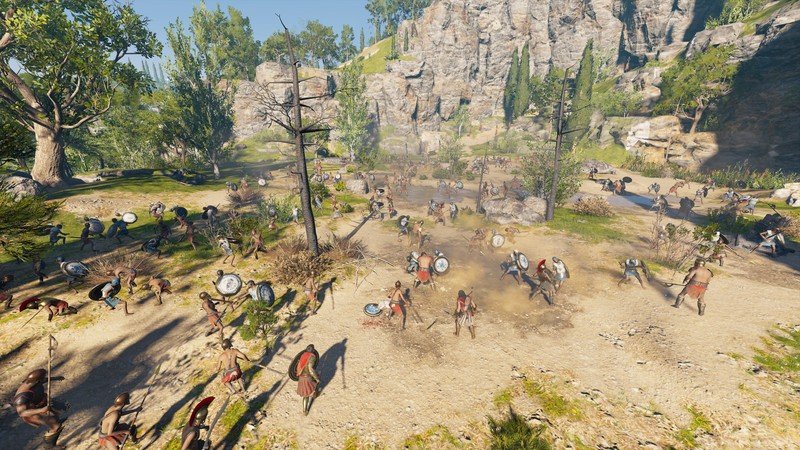
Assassin's Creed Odyssey continues Ubisoft's tradition for open-world detail. Ancient Greece has never been realized so vividly in a game before, dotted with marble ruins, decrepit tombs, and hulking statues. The gigantic map is crammed with a high density of areas to explore, with unique biomes such as Mediterranean islands, swampy marshland, dense forests, and mountainous regions. Each corner of the map has something unique to offer, elevated with spectacular HDR lighting, day and night cycles, and moody weather effects.
Odyssey is another win for Ubisoft's leading design team.
Ubisoft's team has done a great job breathing life into Odyssey in much the same way it did in Origins, with a wide range of intersecting A.I. ecosystems. Ancient Greece is beset by warring factions, with Spartans, Athenians, and other nations littering the world with violence and battles. You can also partake in these large-scale epic fights yourself as part of the game's conquest system, and the volume of fighting NPCs on screen — all without a hint of slowdown — is quite impressive.
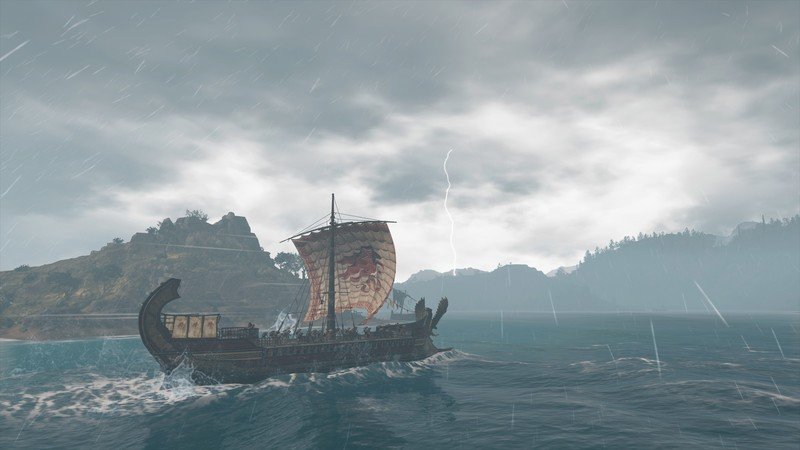
Odyssey is most impressive in 4K on the Xbox One X or on a higher-end Windows PC that enjoys higher pixel densities and draw-distance than the Xbox One S version of the game. In my current build, texture compression probably needs to be tweaked, as it's a little aggressive at times even on the X. That's a minor gripe considering how feature-rich the game's landscapes are, though.
When Jennifer Locke played through Odyssey on PlayStation 4, here's what she experienced:
Get the latest news from Android Central, your trusted companion in the world of Android
Though Assassin's Creed Odyssey has the potential to be a technical showcase on high-end consoles, it is less so on a standard PlayStation 4. During my 30+ hours with it, I encountered a few instances where the game completely froze my PS4 or the frame-rate dropped into the single digits, making it unplayable. Luckily, these instances are few and far between, and oddly did not occur during any big battles. Instead, I encountered these issues while roaming Athens around ten hours into my journey. And like its Xbox One counterpart, Odyssey experiences some textures issues, notably slow pop-in and rendering.As for its graphics on PS4, Odyssey is just about as beautiful as the series gets. Like Origins before it, the Greek world contains a wondrous amount of detail with incredible vistas spanning entire regions. You'll certainly make good use of its built-in photo mode.
Odyssey puts a renewed emphasis on naval combat and sailing, not seen since Assassin's Creed IV: Black Flag. As such, the game has some really spectacular water effects, adapted from previous games. HDR lighting glistens on the waves, which react to weather dynamically, making sailing more dramatic.
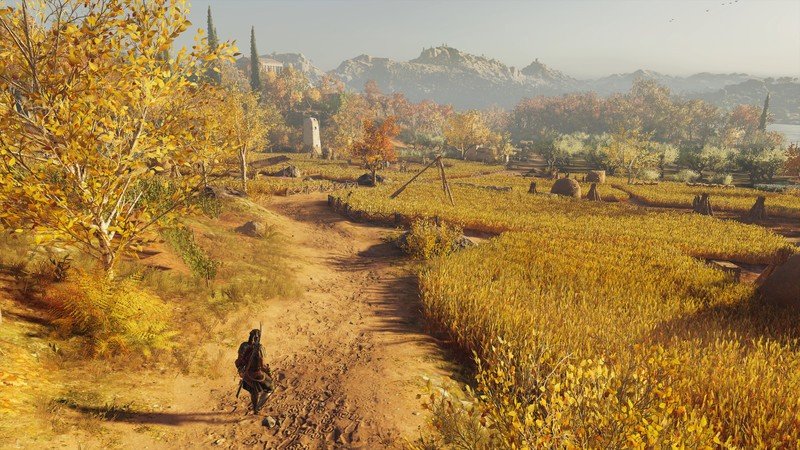
Ubisoft's penchant for authenticity remains in Odyssey. A few dozen hours in, and you'll happen upon Athens, Greece's historic capital. Seeing the Acropolis reimagined during the height of its glory is an inspiring sight, and many other famous Greek landmarks make the cut, too. If you're a fan of ancient Greece and its mythology, this is a game you have to play.
From the detailed 4K visuals, the evocative historical music, and varied environments, Odyssey is another win for Ubisoft's leading open world design team.
Assassin's Creed Odyssey story
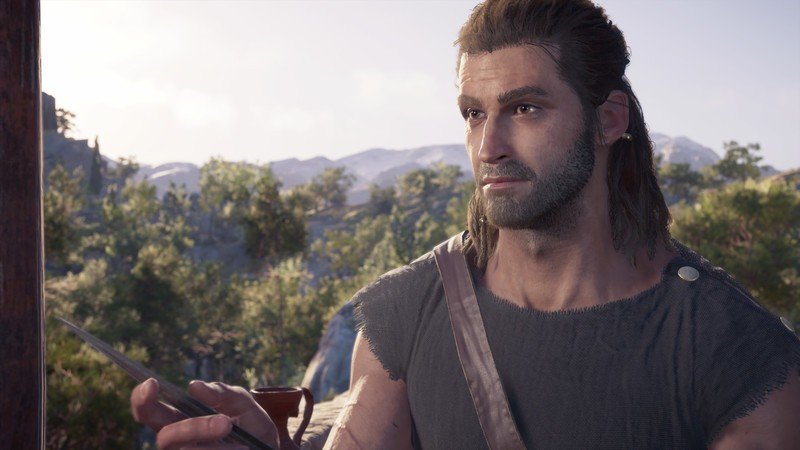
For Odyssey, Ubisoft is diving deeper into RPG territory with its first attempt at a true branching narrative, where your decisions have consequences. The direction is a welcome one, but it's quite clear that Ubisoft is inexperienced with it.
Assassin's Creed Odyssey takes place several years after the famous battle Battle of Thermopylae, which the movie 300 is based on. You play as either Alexios or Cassandra, the grandchild of Leonidas of Sparta.
Following events I won't spoil, you're separated from your family as a child and end up carving a life out for yourself on a small island. Working as a misthios, or mercenary, you're eventually offered a major contract, providing enough cash to leave the island and begin setting up a mercenary company, complete with your own trireme ship.
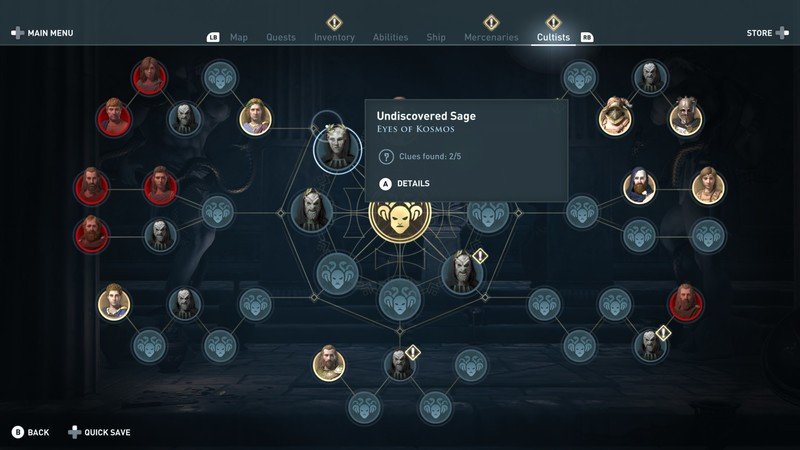
Odyssey follows the familiar Ubisoft formula of tracking down the main antagonist's lieutenants across the world, eliminating them as you work your way to the top. You discover that a nefarious cult is tracking down your family bloodline, working from the shadows to influence Greek politics across the world. Resolving to stop them, Alexios or Cassandra embarks on an epic odyssey to end the cult, and uncover the mysteries of their past and the supernaturally powerful Spear of Leonidas, which ties into the over-arching sci-fi Assassin's Creed plot.
The ability to make story decisions is a nice step forward.
The decisions you make in Assassin's Creed Odyssey are referenced throughout future conversations, but opportunities to influence the actual outcomes of a quest are rare. Some major plot threads diverge based on your decisions, but it's overall a softer approach than other games.
Problematically, your choices can also create odd contradictions in the main character's personality, since main plot threads seem to want to bind you to a specifically noble personality, while side quests often allow you to be, well ... a bit of a dick. In one main story mission, Alexios gets incredibly angry at a villain for playing both sides of the war to sell weapons, despite the fact that the game's quests are rammed with opportunities to do exactly that.
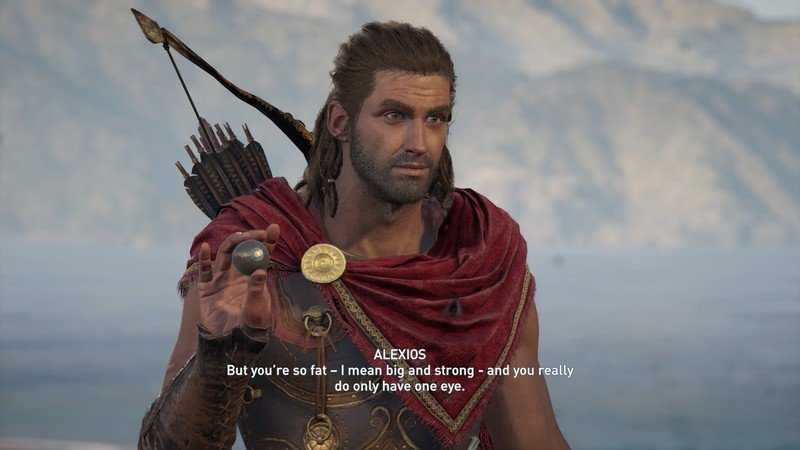
I experienced dozens of instances like this where the main character slips quite easily into inconsistent morals and hypocrisy based on your dialogue choices, versus choices that are made for you as part of the main story. If you want to avoid that, be sure you're always choosing the "heroic" option, since that's effectively what the game wants Alexios or Cassandra to be.
Despite that, Odyssey's story holds up nicely. Some of the dialogue is genuinely laugh-out-loud hilarious, owing to the main character's cocky arrogance. Many of the game's side quests riff on tales from ancient Greece while tying some of the mythology more deeply into Assassin's Creed's main story. The game explores historical accounts of ancient Greek culture, including polytheism, fledgling democracy, ostracism, and slavery.
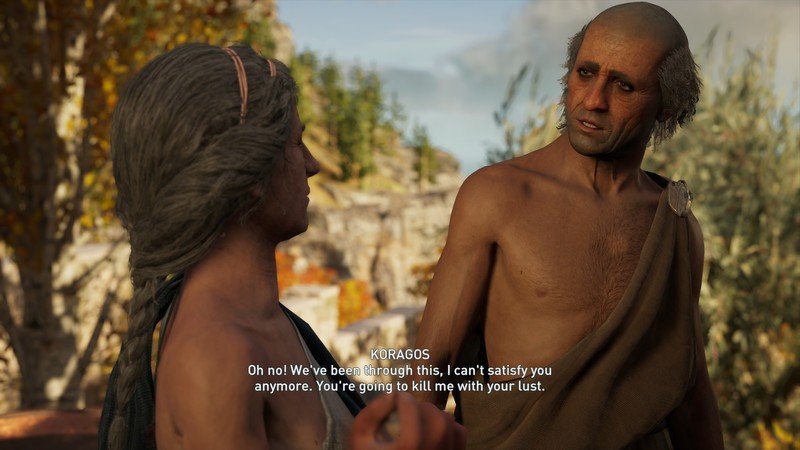
As usual, Ubisoft plays it safe when it comes to controversy and drama, avoiding the introduction of a central antagonist until a few dozen hours in. It makes it difficult to forge an emotional attachment to the story and its characters as a result, since the game revolves around shadowy organizations for the most part, rather than an identifiable threat.
Despite the mixed results, the ability to make story decisions is a nice step forward for the franchise.
Assassin's Creed Odyssey gameplay
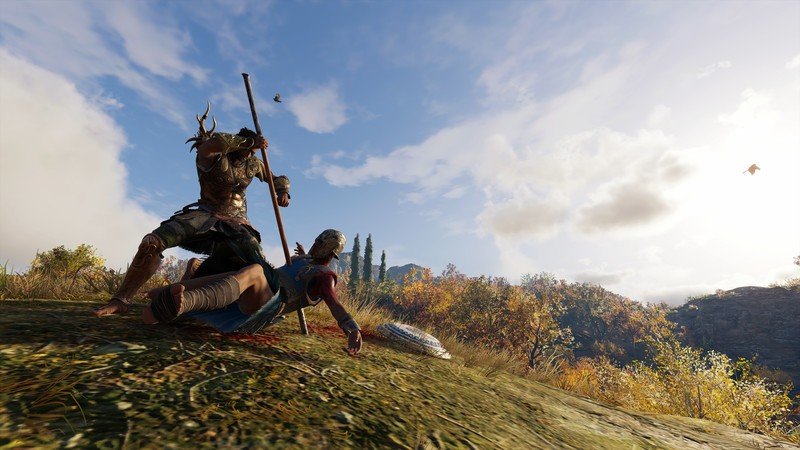
Odyssey continues what Ubisoft started with Assassin's Creed Origins, pivoting the series towards a more RPG-like format. Levels and experience gains are back, as well as loot, passive traits, and specializing ability trees. There are a few systems borrowed from older Assassin's Creed titles and even other games.
On normal difficulty, combat presents a solid challenge, although it can feel a bit cheap at times. Your defensive abilities are a melee parry, a short dodge, and a longer dodge roll. Regular enemies are easy enough to dispatch, their weapons shimmering white to signify that they can be parried. Each weapon type has its own animations to learn and defend against, and once you do, parrying is easy and satisfying, allowing you to follow up with your own combo flurries.
Where things get trickier is in the array of special abilities enemies often have that cannot be parried. In the end, it's usually safer to just dodge-roll when combating elite mercenaries and captains, since a mistake can cost you a huge amount of health. Still, you gain access to your own array of deadly tools to fight back.
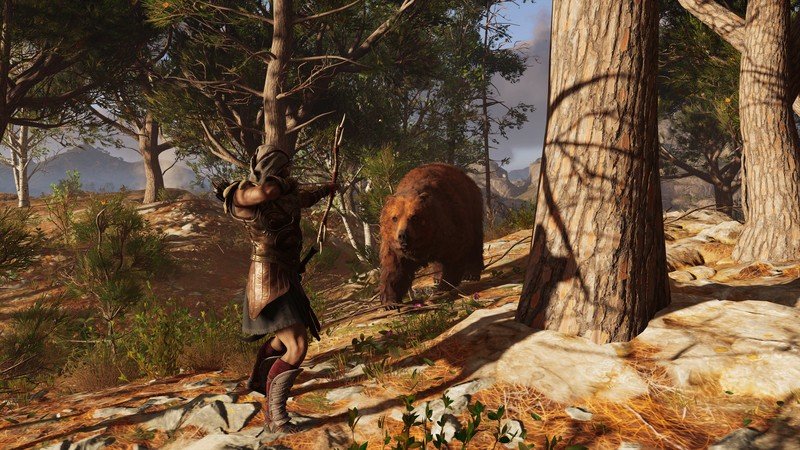
The bow and arrow return from Origins and can be upgraded to a really deadly piece of kit, with aimed headshots dispatching enemies with ease. There are several powerful melee abilities, too, accessible on ability wheels while holding down certain shoulder buttons. The iconic "Spartan kick" popularized in 300 sends enemies flying off edges to their death. You can also wield a wide array of weapons that support various playstyles, including short swords, spears, and large two-handed axes. Beyond standard heavy and light combos, there are some "hidden" special moves you can pull off when dodging in certain directions, adding some flair to proceedings. Fights typically end with a context-sensitive execution animation, which is satisfying.
Supporting basic combat is typical Assassin's Creed stealth gameplay. Replacing the hidden blade is the Spear of Leonidas, which can be upgraded throughout the game's story. Borrowing from Middle-earth: Shadow of Mordor, Alexios can hurl his spear at a distant target to effectively "teleport" to them, although the game makes it seem as though he simply rushed over there. It's a little cheesy in the context of the game, but it's still quite fun to pull off.
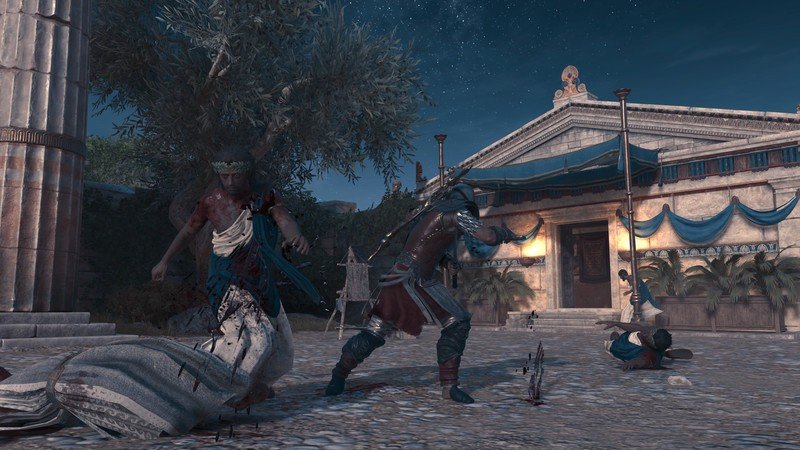
Some of the higher-end abilities include deadly combos, exploding arrows, and slow motion, all important tools for overcoming Odyssey's surprisingly difficult enemies. In keeping with the game's swing to RPG-style mechanics, maintaining your weapons and equipment is a must, because enemies scale directly alongside your level. If you let your gear get too far behind, you will die rapidly. You can upgrade your gear using wood, leather, iron, and other collectibles obtained via exploration or hunting.
As I progressed further through the game, I often found myself struggling to maintain a decent amount of materials to keep pace with the enemies, despite doing a fair bit of exploration and general looting. Missions and areas can jump up a few levels quite quickly, too. If you're the type of person who ignores side quests and exploration, it's easy to find yourself struggling to progress. It's with this in mind that I find it quite frustrating that Ubisoft sells permanent EXP and money boosts within the game for real money, as if they knew that progress would get grindy for some players.
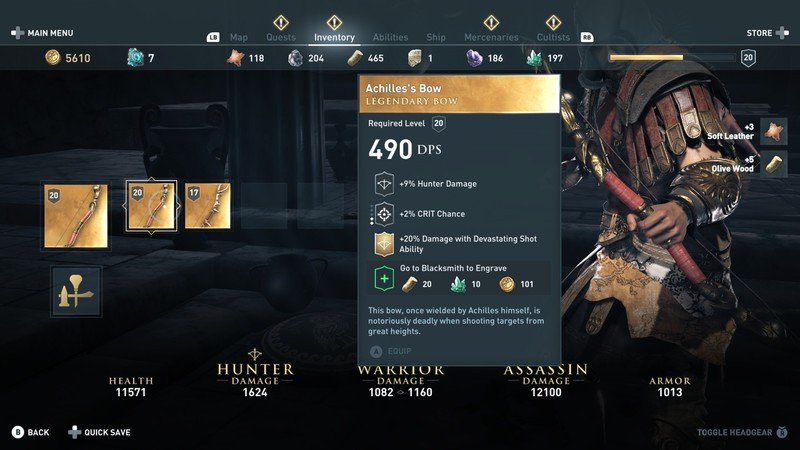
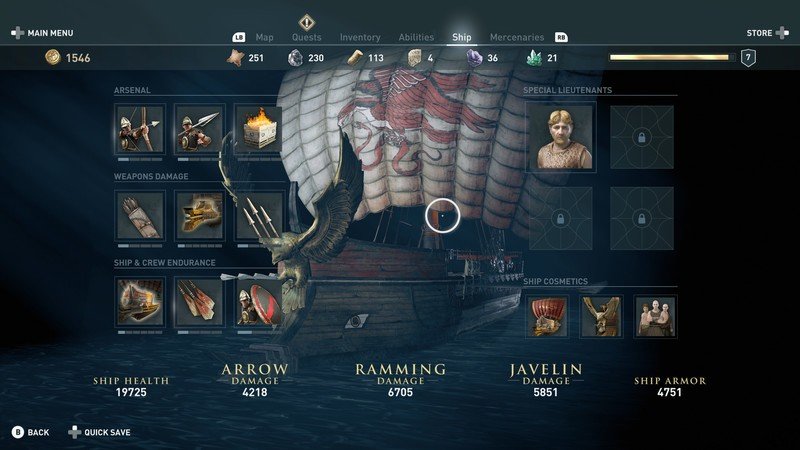
The game revolves around mercenaries, both in its plot and in-game mechanics. Committing murder, theft, and other actions have a chance to create a bounty on your head. More powerful enemies will begin tracking you across the map, often showing up when you would really rather they didn't. As you kill your way up the ladder, you can earn passive benefits such as decreased vendor prices.
This is where I feel Odyssey slips up a bit with its gameplay. You can "recruit" stunned enemies and some quest NPCs into your mercenary company, but once they're in your crew, they pretty much do nothing. There was a missed opportunity here to explore camaraderie and mercenary "brotherhood," in a similar vein to Assassin's Creed: Brotherhood, ironically. It would have been interesting to see real rivalries between you and other elite mercenary groups.
Speaking of bolting on, Assassin's Creed IV: Black Flag's free roaming naval combat makes a return, too, although it's a lot more fun than the mercenary system. The Greek archipelago is a perfect opportunity for this type of naval gameplay, and Odyssey does a good job of making ship combat and traversal feel enjoyable.
Overall, Assassin's Creed Odyssey has great gameplay, but some of the additional systems Ubisoft included for this game could have used a little more love to give this game its own identity.
The lowdown on Assassin's Creed Odyssey
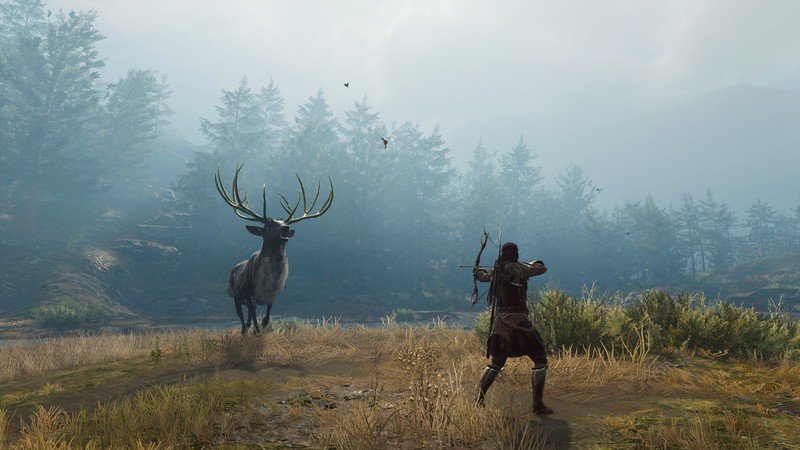
Across the dozens of hours I played Odyssey this past week, I never found myself bored. Whether raiding enemy ships for loot, diving through abandoned tombs off the beaten track, or hunting down some of the game's secret boss fights for legendary gear, there's plenty of things to keep you busy beyond the main story.
Odyssey is a great entry in the wider series, largely bug-free, with great visuals and tight combat. But many of the "new" features Ubisoft included aren't as well executed as you might hope from an annual franchise. I wish Ubisoft had fleshed out the mercenary ladder and mercenary crew a bit more to tie them into the game's story, as it would have granted Odyssey a starker identity. The dialogue choices are a nice touch, and a few key moments can influence the way the game ends. However, you won't really feel much of that impact throughout the game, save for a few referential dialogue lines here and there.
Pros:
- Stunning scenery.
- Satisfying combat.
- Dense open world, full of interesting quests.
Cons:
- Can feel a little grindy at times.
- Does little to refresh the formula.
4 out of 5
If you enjoyed Assassin's Creed IV's naval combat and Assassin Creed Origins' shift to an RPG-like progression system, Odyssey is a match made in Elysium. Odyssey does not revolutionize the franchise, but it's a capable entry that will satisfy fans for dozens and dozens of hours. The game is expected to be released on October 5, 2018, for Xbox One, PC and PlayStation 4, for $60.

